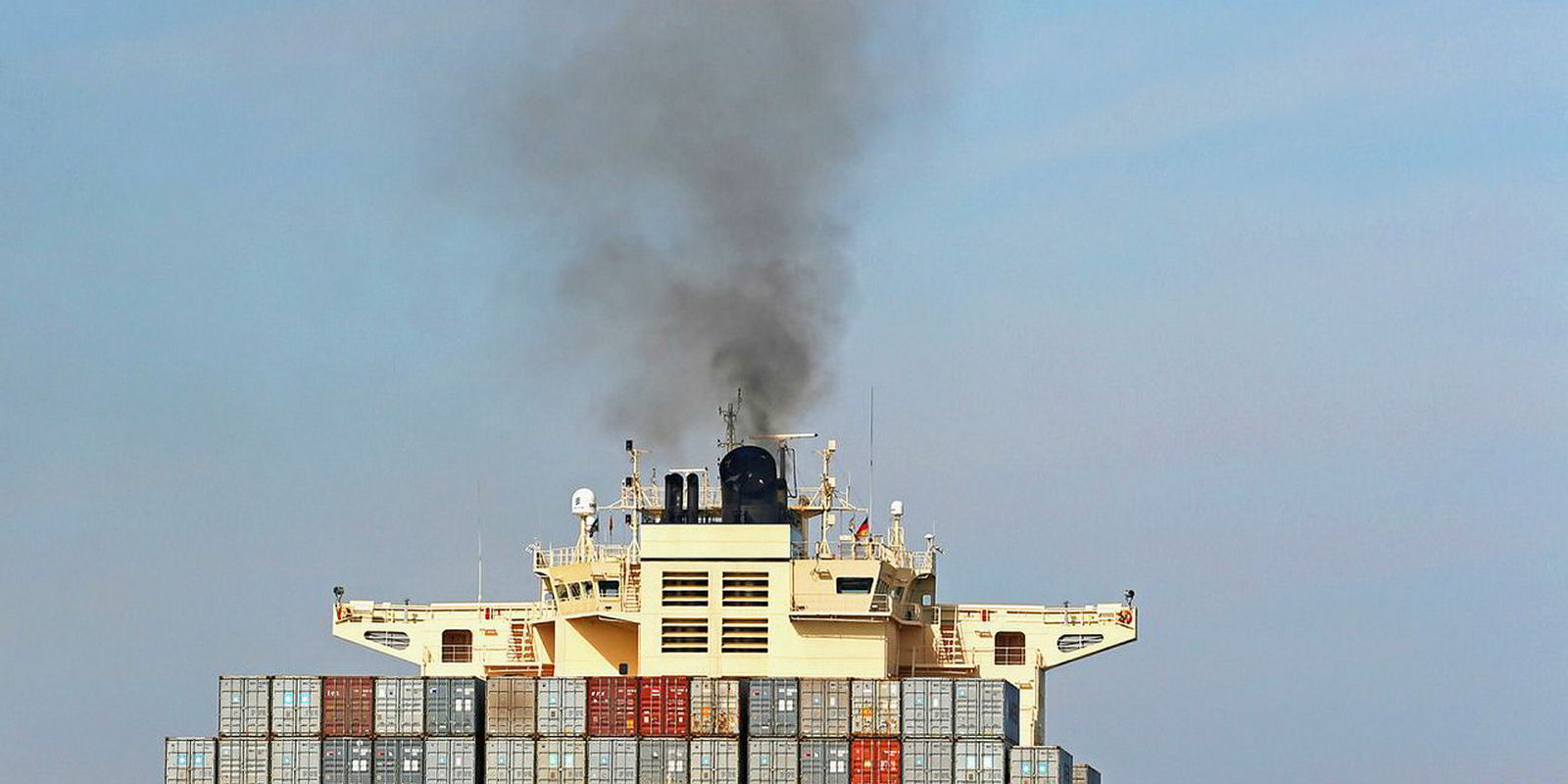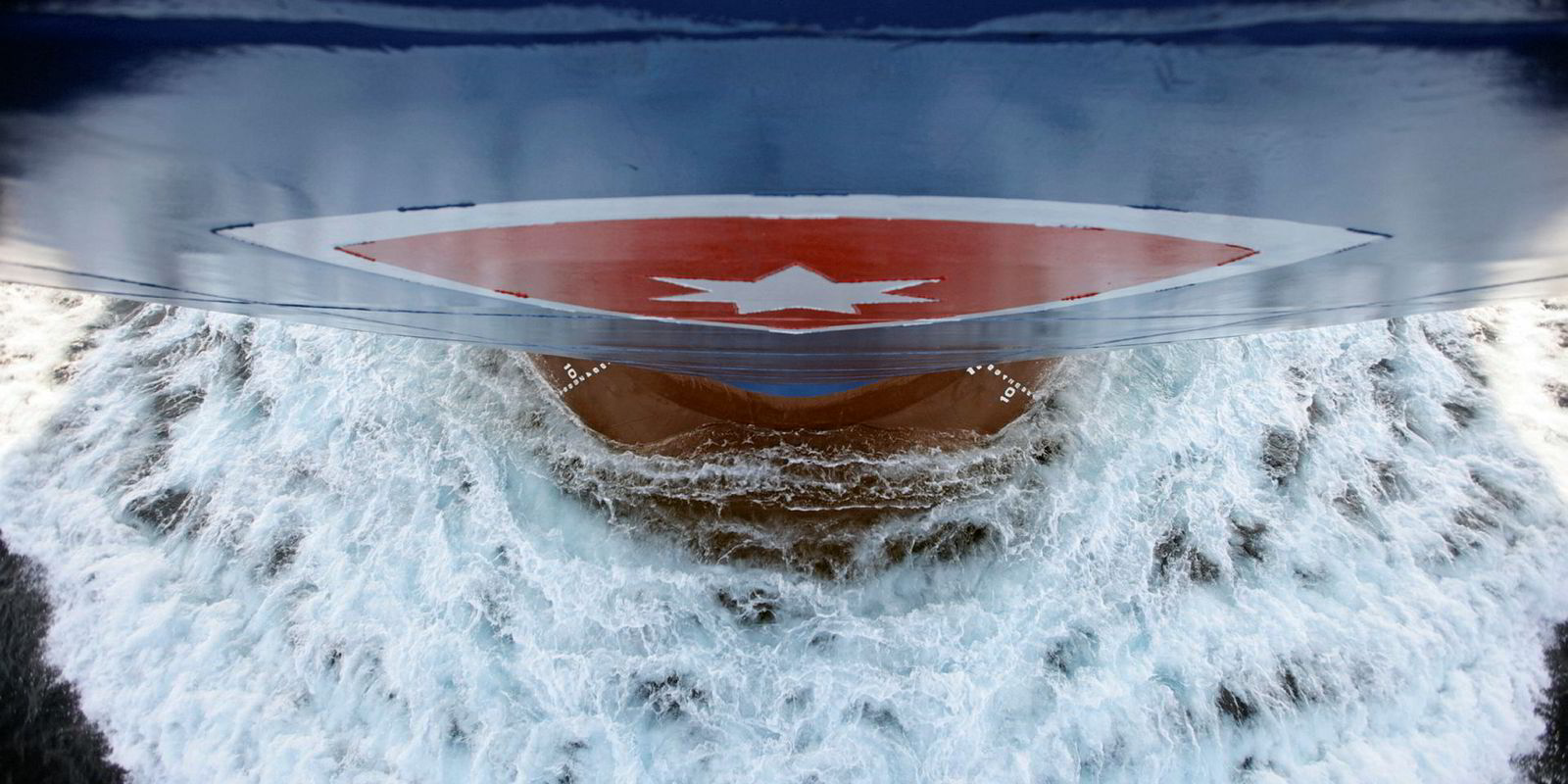Mandatory slow steaming will give a ‘false impression’ that the shipping industry is reducing its carbon emissions, according to the UK Chamber of Shipping.
Proposals made by France and Greece that call on regulators to enforce a speed limit on international shipping will be discussed at an IMO meeting next week.
Over 100 shipping executives have written to the IMO to urge the adoption of such a regulation, as TradeWinds reported earlier.
But there is no evidence that such limits will result in lower carbon emissions, the UK Chamber said in a release on Tuesday.
“Shipowners have already limited their speed by a considerable amount in the past decade and, whilst these proposals have good intentions, promoting further slow-steaming as a low-carbon alternative for international shipping is just not good enough," said Anna Ziou, policy director at the UK Chamber.
Mandatory slow steaming would effectively penalise companies developing and installing low-carbon technologies to reduce vessels' carbon emissions, Ziou said.
"These proposals will do exactly that, and suggest the problem will simply go away if we just drive ships more slowly. This could result in less research and development, and discourage meaningful attempts at eliminating carbon emissions," she said.
The IMO has set a 50% target for reducing shipping's greenhouse gas emissions by 2050, compared to 2008 levels.
Knock-on effects
Speed reduction at sea could also cause supply chains to opt for alternative modes of transport such as road haulage in order to maintain their schedules, which would increase overall emissions, said Ziou.
“In addition, ships may call at certain ports that are tidally constrained where a delay of just one hour could result in a knock-on delay of 12 hours to the vessel as it awaits the next tide," she said.
"Aside from the economic harm, this would unnecessarily create further emissions during the additional waiting time.”
Boxships are already slow-steaming, and are excluded from a French-led speed limit plan, which focuses on tankers, bulkers and gas carriers.
In the letter sent to the IMO this week, executives argued that boxships should have a maximum speed averaged across a year, which would enable exporters of perishable goods to travel faster during peak seasons.






